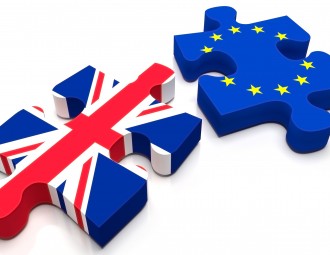Andrei Yahorau: The referendum in the UK left European elite with no illusions

Eurosceptics will have enough energy to initiate referendums on leaving the European Union; but they won’t win them.
Will Britain carry out Brexit results? Can the British referendum on leaving the EU cause a chain reaction? Will Brexit result in reviewing internal and external EU policy?
The questions of the “EuroBelarus“ Information Service covered Andrei Yahorau, the Head of Board of International Consortium "EuroBelarus".
- By organizing Brexit, the UK made the first step. Will it have enough spirit and political will to carry it out, especially after the three million signatures collected for a new referendum?
- Article 50 of the Lisbon Treaty regulates the process of leaving the European Union: The British Parliament must officially apply to the EU for the beginning of the EU exit procedure. Now Britain has gotten into a very difficult inner political situation, since after the referendum, all the negative consequences of leaving the EU, which Brexit opponents warned about, got justified, - starting from the serious economic losses up to the political threat of the UK collapse. The political crisis in the UK will only be developing.
When Britain's leadership will apply to the EU for the beginning of the EU exit procedure and whether it will apply or not depends on how the political crisis will be resolved within the UK. Much depends on the behavior of the political elites. I haven’t seen the data of opinion polls, but the movement of the referendum opponents is developing, which symbolizes the frustration from Brexit. As the British media write, if the real consequences of the referendum were known, many British would have voted differently; many people feel as if they were deceived and are now recede from their earlier statements.
The UK faces the political confusion at the level of political elite and civil society, and it’s not clear yet what the end will be.
- I.e. the UK’s exit from the EU is not a fact, is it?
- No, of course not! Even if Britain today would officially apply to withdraw from the EU, negotiations would start and they would have last for a long time. In any case, the UK will remain in the EU for quite some time.
Can the British referendum on leaving the EU cause a chain reaction?
- There is such a threat. Euroscepticism is quite common in many countries: in France there are now about 60% of Eurosceptics, even in Germany, according to some opinion polls, there are about 48% of them. It creates a favorable environment for populist parties that can initiate referendums on leaving the EU. In this situation, they have enough power to try to achieve such referendums; but they will hardly win them. Especially with the picture of the negative consequences of such referendum for the UK: threats that Brexit opponents have predicting have become a reality.
I hope that pro-European elite and European optimists will be more active and more decisive in holding campaign for the membership in the European Union. Referendums can be initiated, but can hardly be won.
- How has Brexit changed the geopolitical picture of Europe?
- Nothing has changed. The United Kingdom caused a very great damage to itself as a geopolitical actor, falling from the club of states, who solve global problems, to the category of local actors, who have little influence world events.
The referendum will, of course, lead to active debate on the principles of further work within the EU; perhaps the EU policy will become more clear and resolute. At least, the EU demonstrates clear stance on the UK referendum. I think that the referendum in the UK left European elite with no illusions and, I hope, will lead to greater consolidation of the European Union. This means that the EU will be quicker in responding to the emerging problems.
Brexit will rather have a positive impact on the trends within the EU than the negative one.
- Many experts perceive the UK referendum as a weakening of the European Union. What impact will it have on the EU-Russia confrontation?
- Where does the boundary of this confrontation lie?.. What the European Union cannot do now from the list of things it did before?
All geopolitical actors, including the European Union and China, advised the UK against Brexit.
- How will the consequences of the referendum affect the EU projects, for example, the Eastern Partnership?
- Brexit will have no direct impact. Britain's output won’t have much impact on the EU budget, all the more that it will spend the next few years in the EU.
I hope that the natural reaction to Brexit will be the consolidation of the European Union, which will help to elaborate clear foreign policy towards the east: both for the liberalization of visa policy towards Georgia and Ukraine and for the Dutch referendum on the EU association with Ukraine. It is these actions that undermine the credibility and trust towards the European Union as a geopolitical actor. I think we will see more concretion and decisiveness in EU actions in our region.
It will rather be useful for us.
-
03.01
-
07.10
-
22.09
-
17.08
-
12.08
-
30.09








































